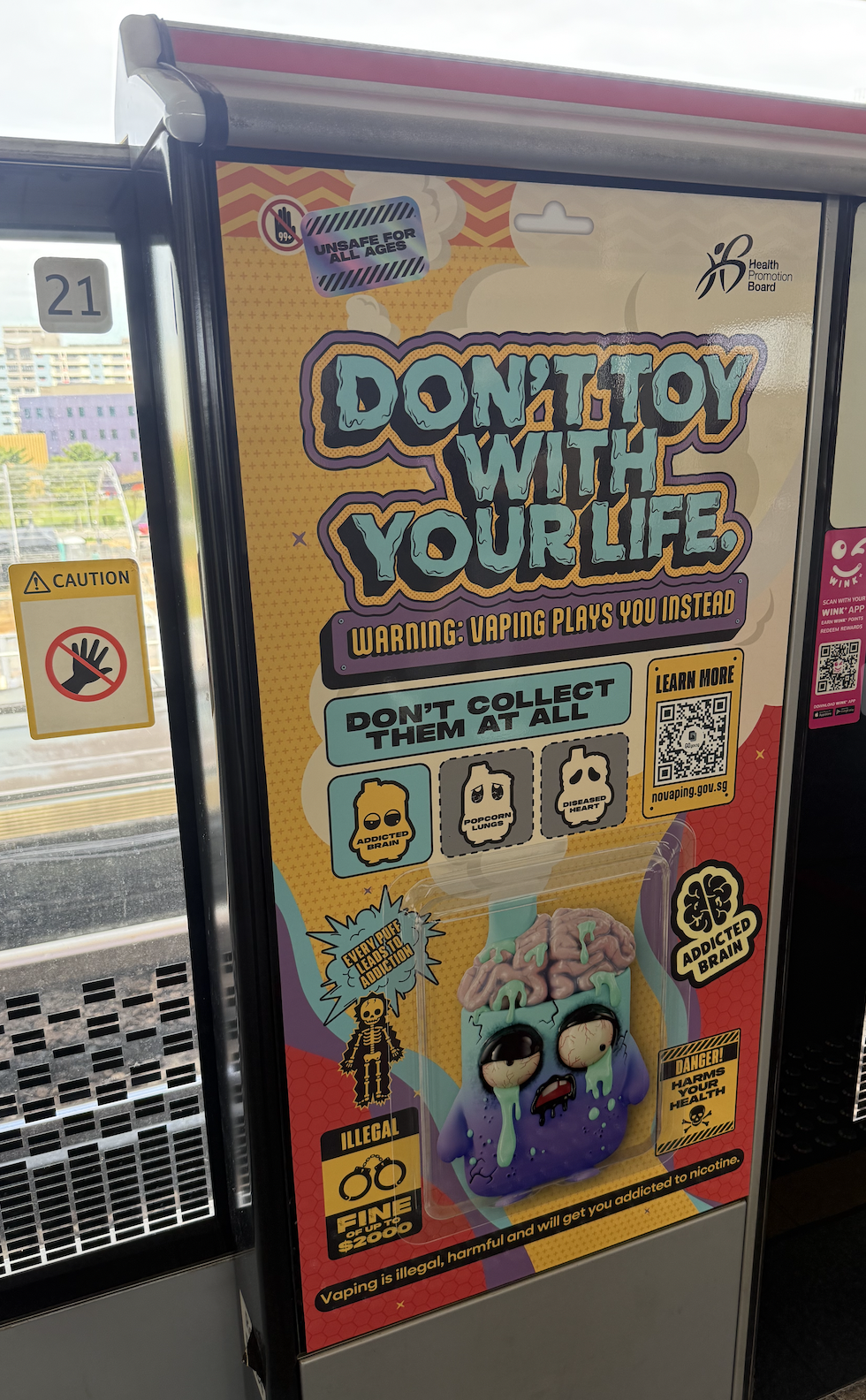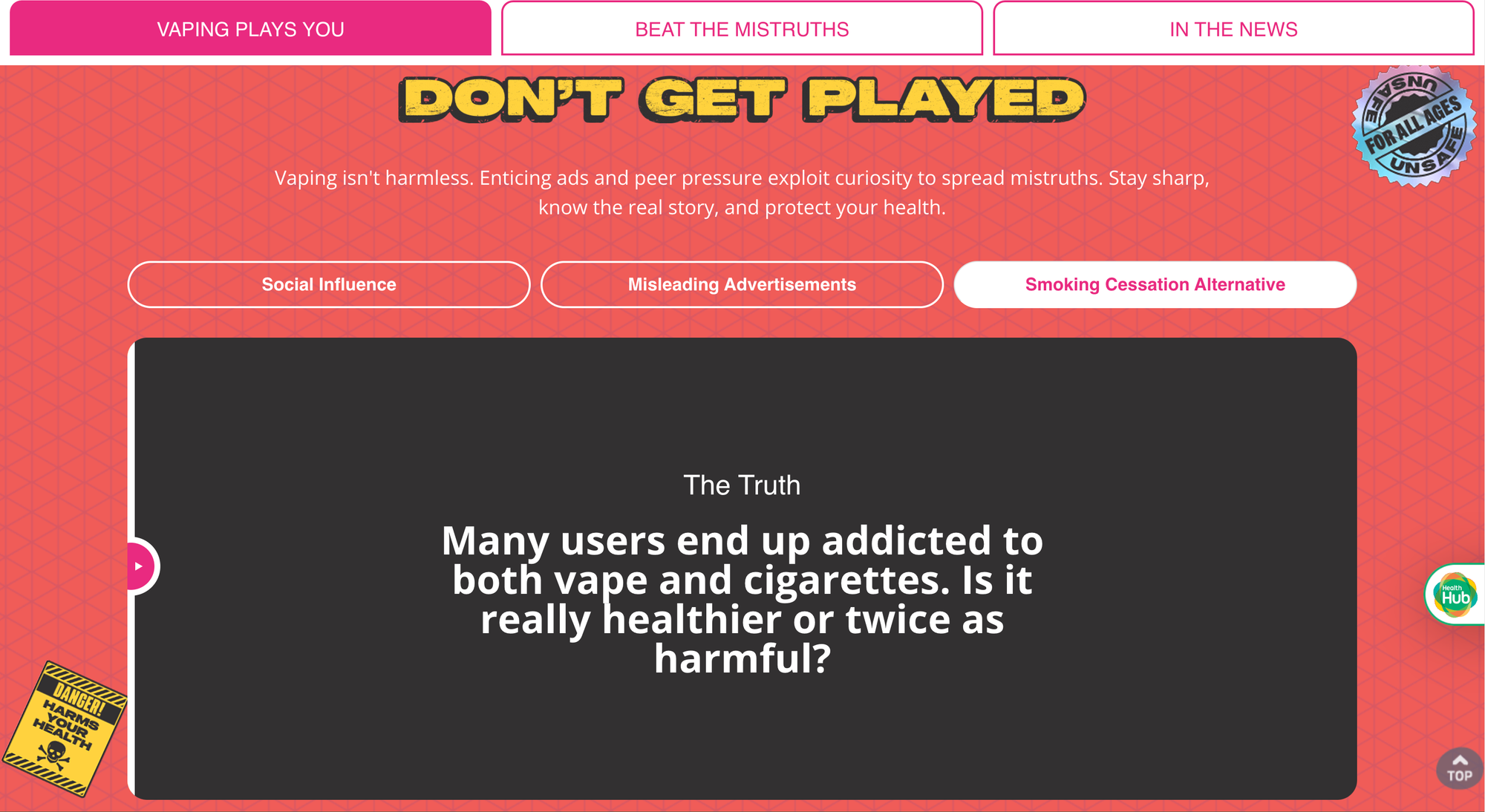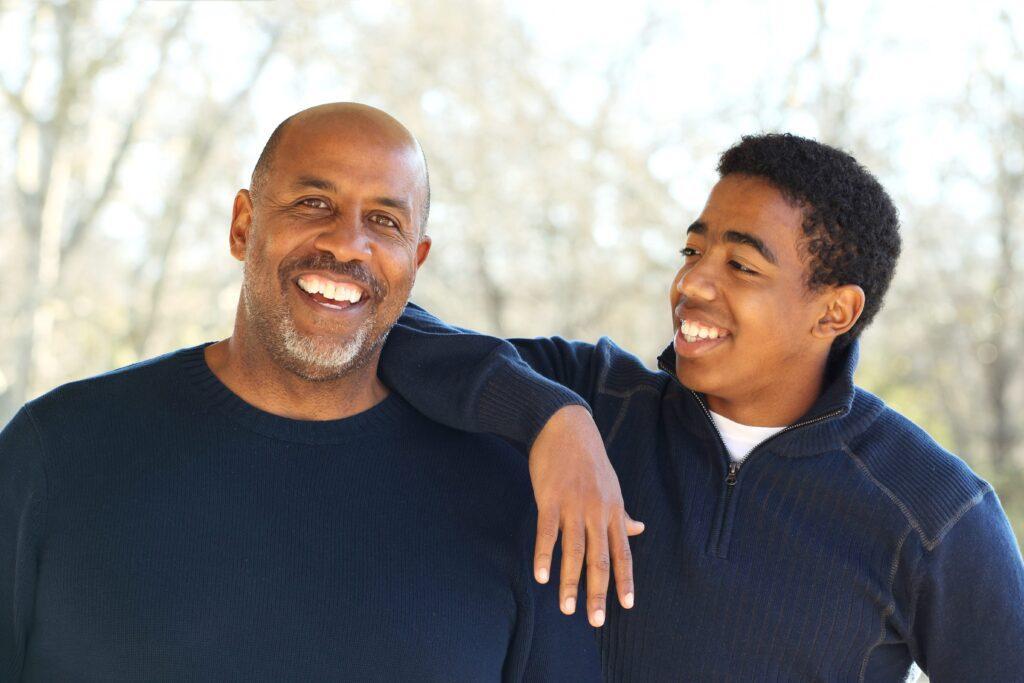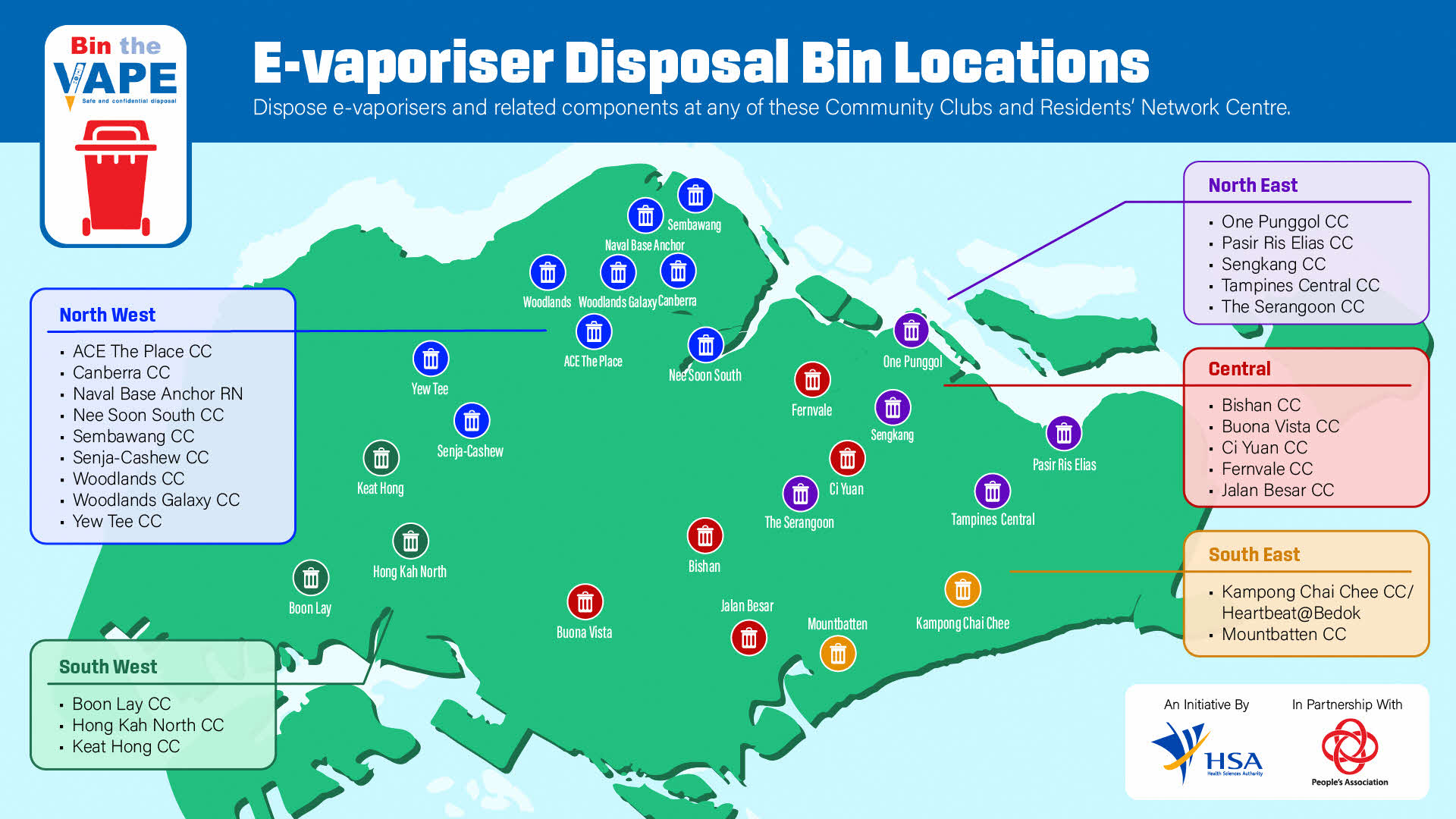This week’s wrap is also an Altering States issue, because there’s been an absolute deluge of articles about vapes and Kpods in the local press recently, and it’s something I’d like to write about at length. I hope my writing can be a way for us to think through this issue together—as always, if you’d like to share some thoughts, you can just reply to this email.
“The breath of death”

If you’re in Singapore, you might have seen this by now: the "Vaping Plays You" campaign—brought to you by the Health Promotion Board—to warn people away from vapes. Singapore is a resolutely anti-vape city where just owning a vape could result in a fine of up to $2,000 if you're caught. Selling vapes could get you up to six months in prison or a $10,000 fine, and this penalty goes up if it isn’t your first time.
The Singapore government insists that vapes are harmful and dangerous and horrible, which is why they need to take a hard line. “Many users end up addicted to both vape and cigarettes. Is it really healthier or twice as harmful?” the campaign website asks in a section with the heading “DON’T GET PLAYED”.

According to a recently published study of the use of vaporised nicotine products among smokers from Australia’s low socioeconomic groups, this “truth” might not actually be true. This was the Australian researchers' conclusion:
Findings indicate that [vaporised nicotine products] were more effective than [nicotine replacement therapy] for smoking cessation in this population. Given the challenges for cessation among these socially disadvantaged populations, VNPs present a promising treatment option for this priority group.
While recognising that vaping is not risk-free, the UK’s National Health Service website states that “UK experts reviewed the international evidence and found that ‘in the short and medium-term, vaping poses a small fraction of the risks of smoking’” and also that “[e]vidence shows that nicotine vapes are actually more effective than nicotine replacement therapies, like patches or gum”. This, of course, comes with the caveat that you get a vape from a regulated supplier like a “specialist vape shop, pharmacy, supermarket or a UK-based online retailer so they are covered by UK safety and quality regulations”. There are no such suppliers in Singapore, so people who vape resort to buying unregulated e-vaporisers from some dude they messaged on Telegram, exposing them to greater risk.
It’s not just the government that’s up in arms. The Straits Times—which seems to see itself more and more as a government agency—has launched their own anti-vaping campaign. Andre Yeo, deputy news editor at ST, wrote an op-ed earlier this month in which he recounted seeing a young couple vaping on the street: "…I wondered if they knew that instead of getting a high, they were actually inhaling the breath of death." He goes on to announce ST’s “Vaping: The Invisible Crisis” campaign: “We believe there needs to be more conversations about the vaping scourge that has already crept into our homes, schools and workplaces.”
What are Kpods?
News coverage has also kicked up a notch with the emergence of Kpods. Although they look very similar to regular vapes, Kpods are laced with chemicals like etomidate, used in medical settings for anaesthesia and sedation. At other times, Kpods can also be laced with ketamine or tetrahydrocannabinol (the main psychoactive compound found in cannabis). Like many other substances, they can be addictive and, if dependency develops, can trigger withdrawal symptoms when the individual tries to stop using.
According to Ong Ye Kung, the health minister, out of 100 vapes seized and tested at random, one in three contained etomidate. What’s frightening about Kpods in Singapore is that, even if you’re holding on in your hand, there’s no way of knowing what’s in it. Is there etomidate in it, and if so, how much? Or is it ketamine? Or is it something else? What’s been mixed in? Unless the liquid in the e-vaporiser is tested—which you probably can't do in Singapore without getting caught by law enforcement—there’s no way to know what you’re inhaling into your body. This is obviously risky and dangerous.
Even more worrying: kids are using Kpods. There have been multiple stories in the media about teenagers using Kpods with their friends. Some of these stories have even linked Kpod use to teenagers dying (although, in my reading of these articles, it seems to be more correlation than proven causation). Of course parents are anxious, the public is concerned, and the government wants to show that they’re doing something.
Here comes the clampdown
Research like the study I mentioned earlier indicate that, for regular smokers, vapes with appropriate levels of nicotine could be less harmful than smoking cigarettes. Vapes, in and of themselves, aren't the devil's death-dealing bubble machine. The key questions are: What's in the vape? Where is it coming from? Do consumers know what they're getting? Who's using the vape, and who shouldn't be using it at all?
Kpods are a subset of the broader category of vapes; because they're laced with chemicals like etomidate or ketamine, they're riskier than the standard nicotine vape. But a RICE Media commentary (that seems to have vanished from their own website) points out that this distinction has been muddied in Singapore’s “War on Vaping”:
By collapsing the line between nicotine vapes and drug-laced K-pods, any room for nuance (or compromise) is erased. Instead of debating harm reduction or regulation, the new messaging is binary and blunt: vapes are evil, vapes tear families apart, vapes kill.
But not all vapes are K-Pods. Yet, this distinction is being erased in the public eye, intentionally or otherwise.
Never mind that the now-viral claim that “1 in 3 vapes” in Singapore contains etomidate is based on a tiny sample of just over 100 seized devices. Once all vapes are symbolically bundled with narcotics, there won’t be a need for measured policies. The terror of an ‘epidemic’ nullifies it.
This technique—risk bundling—is familiar territory. The 2013 Little India riots led to the introduction of the Liquor Control Act two years later. Cases of misinformation and fake news prompted the Protection from Online Falsehoods and Manipulation Bill.
And it works. Alarmist headlines like “man found behaving erratically on overhead bridge while vaping” and “teen caught with stash of drug-laced pods” are bound to provoke panic. Public outrage follows. Crackdowns and new bills are justified.
Meanwhile, the harder questions—why youths are turning to K-Pods in the first place, and how these products became so widespread despite earlier bans—barely register in the conversation.
Media coverage has pointed to a law enforcement conundrum for the authorities. Etomidate is classified under the Poisons Act, which prohibits the unauthorised import, sale or possession of a long list of substances. (Vapes themselves are banned under the Tobacco (Control of Advertisements and Sales) Act.) Because of this, the punishment is much lighter than if it was an offence under the Misuse of Drugs Act, the law that makes Singapore famous for having one of the harshest drug laws in the world. Although the government tabled amendments to the Misuse of Drugs Act in 2023 to “introduce a new legislative framework to control substances based on their capacity to produce a psychoactive effect, rather than on their chemical structure”, these amendments exclude the chemicals listed under the Poisons Act. With this issue so fresh on people’s minds, there have been calls for the government to “update” (i.e. make harsher) the laws to address this. The government is already on it, and intend to list etomidate as a Class C drug.
Can we keep kids safe through punishment?
I spent most of last weekend at TJFest where I told the stories of death row prisoners and delivered a lecture on the war on drugs. There were also other sessions and activities related to policing, transformative justice and harm reduction. It felt really nourishing and encouraging to share space with so many people who want to live in a society that focuses more on care than punishment.
I carry this experience, and all the issues we’d discussed and reflected on, into thinking about Kpods. The method of consumption might seem new to us—which is why this is being reported with such breathless urgency—but Kpods are ultimately just another form of drug consumption, and the same principles apply.
We already know that Kpods are risky. There is a valid case for restricting access to Kpods, especially when it comes to young people. But restricting access doesn’t have to—and really shouldn’t—come in the form of ‘harsh deterrent’ penalties for users. It certainly shouldn't lead to an expansion of our war on drugs to vapes and Kpods, because this will cause even more harm without actually addressing needs.
A couple of days ago, a 15-year-old boy who’d been caught with vapes (not Kpods, as far as I can tell from the news reports) five times was sent for a two-year stint in the Singapore Boys’ Home. The government has also said that the Ministry of Education will be notified if students are caught vaping, and these kids might get extra punishment—like suspension from school or even caning for boys—on top of the Health Sciences Authority’s penalties. What is this going to achieve? Throwing a child into a juvenile detention (although the state prefers to call it “rehabilitation”) facility for vaping inflicts pain, fear and stress, all of which could have long-lasting effects on their life. The same goes for corporal punishment and temporarily barring kids from school: it doesn’t address why a young person might start vaping, it doesn’t give them any information on how to keep themselves safer and make informed choices, it doesn’t do anything but deliver humiliation and shame.

While sifting through the flood of news coverage on Kpods and young people, I noticed references to anxiety, depression, stress, coping. Not everyone who puffs on a Kpod is guaranteed to develop a dependency on the chemicals contained within it. For those who do, are there reasons why they’ve latched on to this coping mechanism? As Dr Munidasa Winslow, an expert in treating addiction and impulse control disorders, told CNA: “Substance use is rarely just about the drug. It is often tied to deeper emotional or psychological roots. […] What is more important is understanding why it became a crutch in the first place, and how to replace that with healthier, more sustainable ways to cope.”
Apart from this, adolescent brains are primed to be curious and risk-taking. We've all been there with the not-yet-fully-developed brains that made us, in one way or another, doofus gremlins who learnt through experiences and mostly mistakes. Telling kids to "just say no" to vapes—or any substance or activity—doesn't really work (again, with all the affection in the world: doofus gremlins). Parents, teachers and other adults who interact with young people need to be equipped with evidence-based information and tools to talk about the risks of vapes/Kpods/drugs (and also sex and interacting with strangers online and all manner of other things that young people might encounter today). It's not good enough to fear-monger and threaten—if kids feel like you're feeding them BS or are only interested in control, they might just stop communicating with you and turn elsewhere.
Here are some resources for parents on how to approach conversations about drugs with children and adolescents:


Support and punish?
While I was writing this newsletter (which has taken all day because, apart from a few breaks, I keep vanishing down rabbit holes Googling and reading things), the government announced "Bin the Vape". They're going to place bins at 24 locations (and will add more) across Singapore for people to chuck their vapes and Kpods before, they say ominously, "the law catches up with them". The government also promises that, during this period before etomidate becomes a Class C drug, anyone who voluntarily surrenders their Kpod and seeks treatment will not be punished. But after that...
Once etomidate is listed as a Class C drug under the MDA in a few weeks’ time, those caught using etomidate-laced e-vaporisers will be subject to mandatory supervision and rehabilitation. Repeat offenders are liable to be prosecuted and subject to jail for at least a year. Those caught selling, distributing or importing etomidate-laced e-vaporisers will be subject to more severe penalties, including jail up to 20 years and caning.

There's this tiny window of grace, and then it goes right back to punishment again. The needs and struggles of people, including teenagers, who might have developed a dependency to etomidate or other substances don't change after these few weeks—but if they miss this amnesty period, they won't be able to seek treatment without getting reported and exposed to criminal punishment. This doesn't make sense. If we really cared about people's well-being, why would we erect barriers around them getting help?
The campaign slogan for a health and human rights–centric drug policy is "Support. Don't Punish". Singapore seems to believe that we can support while punishing. We urgently need to realise that we can't support anyone while we're also hurting them, shaming them, and making the rest of society fear or hate them.

Thank you for reading! As always, feel free to forward this weekly wrap to anyone you like, and spread the word about this newsletter!




